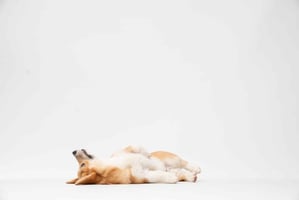Chihuahua puppies are known for being affectionate and loyal companions. But with that comes the...
Chihuahua Training - A Comprehensive Guide to Training Your Chihuahua
Training a Chihuahua is not a difficult task, but it does require patience and dedication. This comprehensive guide will cover all aspects of Chihuahua training, from potty training to obedience and socialisation. With the right approach and positive reinforcement, you will be able to teach your Chihuahua the skills they need to be a well-behaved and happy member of your family.
Understand Your Chihuahua’s Needs
The first step to successful Chihuahua training is understanding your pup’s needs. Chihuahuas are intelligent, loyal, and full of personality. They need plenty of love, attention, and exercise to stay happy and healthy. Proper nutrition, regular vet visits, and plenty of playtime are essential for your pup’s health and wellbeing.
Potty Training Your Chihuahua
Potty training is one of the most important aspects of Chihuahua training. With patience and consistency, you can teach your pup to go to the bathroom outside or in a designated area. The best way to do this is to create a consistent routine. Take your pup outside to the same spot at the same time each day and reward them with a treat and plenty of praise when they go to the bathroom in the right spot.
It is also important to keep an eye on your pup and watch for signs that they need to go to the bathroom. If you catch them in the act, quickly take them outside to the designated spot and reward them when they finish. It is important to be patient and consistent with your pup during potty training. Accidents will happen, but with patience and consistency, your pup will learn quickly.
Crate Training Your Chihuahua
Crate training is an important part of Chihuahua training. Crate training helps your pup to feel safe and secure, and it can also help with potty training. When you’re crate training your pup, it’s important to make sure that the crate is the right size and that it is comfortable and secure. Line the crate with a blanket or towel to make it more comfortable, and make sure that your pup has plenty of toys and treats to keep them occupied.
When you first introduce your pup to the crate, it’s important to make it a positive experience. Give your pup treats and plenty of praise when they enter the crate. Once your pup is comfortable in the crate, you can start leaving them in it for short periods of time. Gradually increase the amount of time your pup spends in the crate, and reward them with treats and praise when they stay in the crate for an extended period of time.
Obedience Training Your Chihuahua
Obedience training is an important part of Chihuahua training. Teaching your pup basic commands such as “sit”, “stay”, and “come” will help them to be well-behaved and obedient. The best way to do this is to start with basic commands and reward your pup with treats and praise when they obey. Once your pup has mastered the basic commands, you can move on to more advanced commands such as “heel” and “leave it”.
It’s important to be patient and consistent when training your pup. Make sure to reward your pup with treats and praise when they obey, and never punish them for not obeying. With patience and consistency, your pup will learn quickly and be a well-behaved member of your family.
Socialisation Training for Your Chihuahua
Socialisation is an important part of Chihuahua training. Teaching your pup how to interact with people and other animals is essential for their wellbeing. Start by introducing your pup to people and other animals in a safe and controlled environment. Make sure to reward your pup with treats and praise when they interact with people and other animals in a positive way.
It’s also important to take your pup to different places and expose them to different environments. Taking them to the park, for walks, and to doggy daycare are all great ways to help your pup become more social. With patience and consistency, your pup will learn how to interact with people and other animals in a positive way.
Conclusion
Chihuahua training requires patience and dedication. With the right approach and positive reinforcement, you can teach your pup the skills they need to be a well-behaved and happy member of your family. Start by understanding your pup’s needs, and then move on to potty training, crate training, obedience training, and socialisation. With patience and consistency, your pup will learn quickly and be a well-behaved and happy member of your family.



